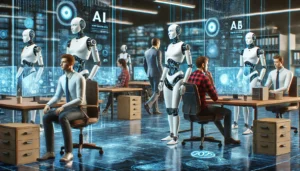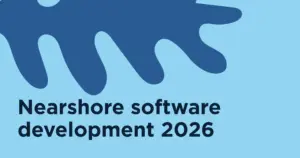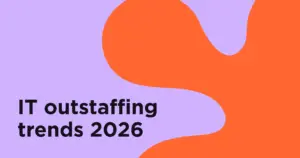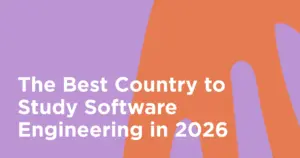Artificial Intelligence (AI) is evolving at an unprecedented pace, reshaping industries and the way we work. Many professionals wonder: will AI replace jobs in 2025? With automation, machine learning, and advanced AI models rapidly improving, the impact on the workforce is undeniable. While some jobs are at risk of being automated, new opportunities are emerging, making AI a double-edged sword in the job market.
The Current State of AI in Jobs 2025
AI is already deeply integrated into various industries, from customer service chatbots to advanced data analytics and automation tools. In 2025, AI will continue to refine these processes, creating both challenges and opportunities for employees across different sectors.

According to a World Economic Forum report, AI is expected to disrupt 85 million jobs globally by 2025. However, the same report suggests that AI will create 97 million new roles, particularly in tech-driven sectors. The key takeaway? AI may replace some jobs, but it will also lead to the emergence of new career paths requiring different skill sets.
Industries Most Affected by AI
While AI will impact almost every industry, some will see more disruption than others. Here are a few sectors that will experience significant AI-driven transformation in 2025:
1. Customer Support and Call Centers
Many companies are already implementing AI-powered chatbots and voice assistants to handle customer inquiries. While this reduces the need for human agents in routine interactions, customer service roles that require empathy, complex problem-solving, and critical thinking will remain in demand.
2. Manufacturing and Logistics
AI-powered robots are becoming more prevalent in warehouses and production lines. Companies like Amazon are heavily investing in robotics to streamline operations. While this could reduce manual labor, it also creates job opportunities in AI system maintenance and oversight.
3. Healthcare and Medicine
AI is revolutionizing healthcare by assisting with diagnoses, personalized treatment plans, and robotic surgeries. However, the human element in patient care remains irreplaceable. AI will likely enhance the efficiency of medical professionals rather than replace them. Platforms like IBM Watson Health showcase AI’s potential in medical research and patient care.
4. Content Creation and Marketing
AI-powered tools like ChatGPT and Jasper AI are generating content, automating social media posts, and even optimizing SEO strategies. While AI can assist in content creation, creative and strategic roles still require human insight and originality. Marketers who embrace AI-driven analytics will stay ahead in 2025.
5. Finance and Banking
AI-driven algorithms are improving fraud detection, risk assessment, and automated trading. Banks and financial institutions are increasingly relying on AI to process large amounts of data efficiently. However, roles in financial advising, investment strategy, and regulatory compliance will still require human expertise.
Jobs That AI Cannot Replace
While AI excels in automating repetitive and data-driven tasks, it struggles with creativity, emotional intelligence, and critical thinking. Here are some jobs AI is unlikely to replace in 2025:
- Creative Professionals (Writers, Designers, Filmmakers): AI can assist in generating ideas, but human creativity remains unmatched.
- Healthcare Professionals (Doctors, Nurses, Therapists): AI can analyze data but lacks the human touch needed in patient care.
- Educators and Trainers: AI can provide educational resources, but human teachers bring empathy, adaptability, and mentorship.
- Skilled Trades (Electricians, Plumbers, Carpenters): Hands-on work requiring problem-solving and adaptability remains difficult for AI to replicate.
- Psychologists and Counselors: AI cannot replace the deep emotional connection required for therapy and counseling.
How to Prepare for the AI-Driven Job Market
If AI is reshaping jobs, how can professionals stay ahead in 2025? Here are some proactive steps:
1. Upskill in AI and Technology
Understanding AI and machine learning concepts will be crucial for future job security.
Platforms like Coursera and Udacity offer AI-related courses to help professionals adapt.
2. Focus on Soft Skills
AI cannot replace human creativity, emotional intelligence, or leadership. Strengthening skills like problem-solving, communication, and adaptability will ensure job security.
3. Embrace AI as a Tool, Not a Threat
Instead of fearing AI, professionals should learn to leverage AI-powered tools to enhance productivity. For example, marketers can use AI-driven analytics for targeted campaigns, and project managers can use AI-based forecasting models to improve efficiency.
4. Explore AI-Resistant Careers
Jobs in healthcare, education, creative industries, and skilled trades will remain relevant. Professionals should consider career paths that require human judgment, social interaction, and hands-on skills.
Conclusion: The Future of AI in Jobs 2025
AI is undoubtedly changing the job market, but it doesn’t have to be a threat. Instead, it allows professionals to adapt, grow, and explore new career possibilities. The key to success in 2025 and beyond is to embrace AI, continuously upskill, and focus on areas where human intelligence outshines automation.
At Yoocollab, we understand that businesses need the right talent to navigate these changes. That’s why we offer outstaffing and outsourcing services to help companies find skilled professionals who can integrate AI tools while maintaining the human expertise needed for success.
Looking for the right team to future-proof your business?
Contact Yoocollab today and build a workforce ready for the AI-driven future!




